Vegan calcium sources
Calcium is classically associated with dairy products in the western world. But there are a variety of vegan food sources that will satisfy the required calcium intake.
In this blog, we cover why it's important to make sure you are getting enough calcium, the required daily intake and the vegan foods that are highest in this micronutrient.
The importance of calcium as a micronutrient
Calcium is a micronutrient that's most commonly associated with the formation and metabolism of bone. Calcium is critical for the structure of the skeleton and is necessary for tissue rigidity, strength and elasticity, the functions that allow for normal movement and exercise. 98% of the body's total calcium is found in the skeleton. [1]
Another function of calcium is as an essential intracellular messenger in cells and tissues throughout the body. The ionized calcium present in the circulatory system, extracellular fluid, muscle, and other tissues, is critical for mediating vascular contraction and vasodilatation, muscle function, nerve transmission, and hormonal secretion. [1]
Why it's important to plan your calcium intake
Because dairy is marketed as the go-to source of calcium in western markets, getting enough calcium on a vegan diet might require some new learning. By knowing the plant-based foods that have high calcium levels, its' easier to ensure they are consumed regularly.
A large systematic review and analysis in 2019 on more than 37,000 participants found that compared with omnivores, vegetarians and vegans had lower bone mineral density at the femoral neck and lumbar spine and vegans also had higher fracture rates. The study concluded that vegetarian and vegan diets should be planned to avoid any negative impacts on bone health. [2]
The Reference Daily Intake (RDI) of calcium is 1,000 mg per day for adults. It's not difficult to get enough calcium on a plant-based diet with an understanding of which plants are high in this micronutrient and eating these foods daily.
Vegan foods high in calcium
1. Soybeans
Soybeans and any products made from this food are a good source of calcium. This includes tofu, edamame, tempeh and soy milk. One cup of cook soybeans contains 175mg of calcium, one cup of tempeh contains 184mg and tofu can contain between 130-450mg depending on how it's processed (if it's processed with calcium sulfate it's higher). Some soy milk and other plant-based milk have added calcium.
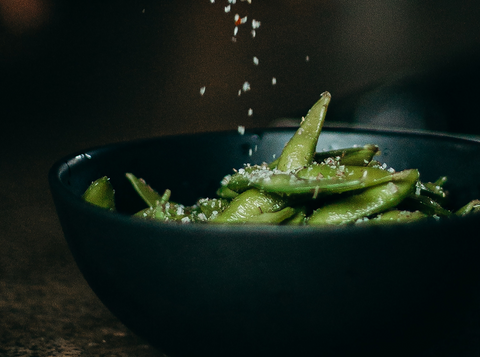
2. Beans and Lentils
Beans and lentils are valuable sources of calcium. Black beans provide roughly 11% of recommended daily intake per cup (175 grams). White beans and navy beans provide ~13% of the recommended daily intake, chickpeas provide 9% and lentils provide 4%. An added advantage of these foods is that they’re highly nutritious with plenty of iron, zinc, and potassium. [3]
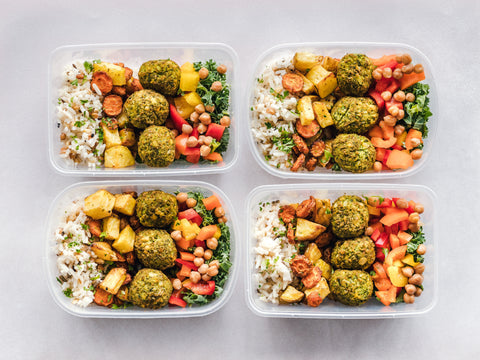
3. Certain Nuts and Seeds
Certain nuts such as almonds and brazil nuts are a good source of calcium. 1/4 cup of whole almonds contains ~94 mg of calcium which is almost 10% of the recommended daily intake. Nuts are also great sources of fibre, healthy fats, and protein. Almond butter is a delicious and effective way to get a good dose of calcium.
Sesame seeds contain calcium. Tahini made from sesame seeds can provide up to 130 mg for every two tablespoons. That’s almost 13% of the daily requirement. Chia and flax seeds also provide calcium amounting to 5% of the daily requirement for every 20g.
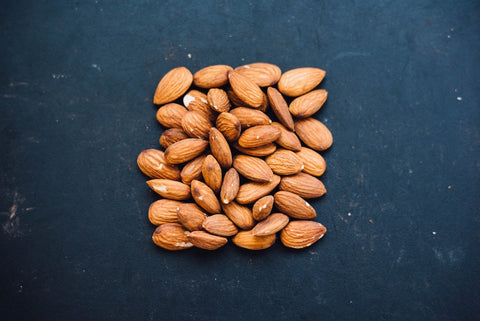
Photo by chuttersnap on Unsplash
4. Green Vegetables
Collard greens, kale, cabbage, broccoli, mustard greens, turnip greens and bok choy all provide a good amount of calcium, as well as a suite of other vitamins and minerals.
- One cup of cooked collard greens contains ~268 mg of calcium (27% of the recommended daily requirement)
- One cup of cooked turnip greens contains ~ 197 mg of calcium (20% of the recommended daily requirement)
- One cup of cooked kale contains ~ 177 mg of calcium (28% of the recommended daily requirement)
- One cup of cooked mustard greens contains ~ 165 mg of calcium (17% of the recommended daily requirement)
- One cup of cooked bok choy contains ~ 158 mg of calcium (16% of the recommended daily requirement)
- One cup of cooked broccoli contains ~ 62 mg of calcium (6% of the recommended daily requirement)

5. Berries
Berries such as blackcurrants, blackberries, and raspberries are high in calcium and can provide 7% of one’s daily requirement per cup.
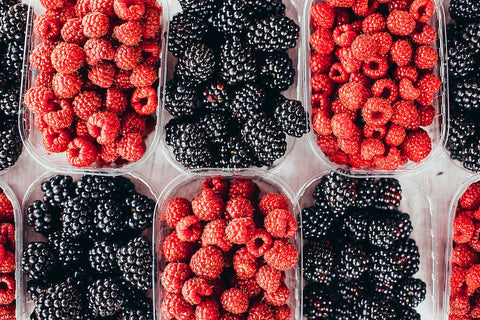
5. Amaranth and Teff
Amaranth (a pseudo-grain) and teff (a gluten-free whole grain) can provide high amounts of calcium. Both of these can provide ~12% of the daily requirement for every 250g that are cooked. They’re also rich in fibre, magnesium, iron and gluten-free.
6. Seaweed
Wakame Seaweed in its raw form can provide up to 126mg of calcium per cup which constitutes 12% of the recommended daily requirement. Kelp is another option that can provide roughly 14% of the daily calcium requirement required for adults.
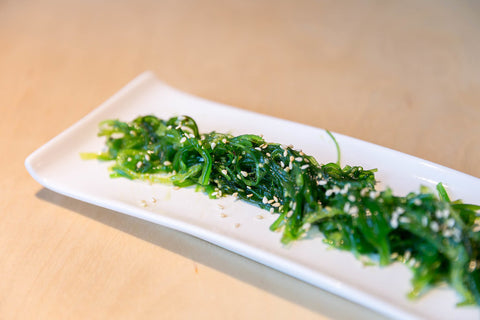
Conclusion
Plenty of options exist for vegans to supplement their diet with calcium and remain healthy. Including plant-based foods that have high levels of calcium in your daily meals will help you to get the recommended daily intake. Besides, our body calcium intake or absorption also depends on physical activity, vitamin D3 intake and other micronutrients, such as vitamin B12 & A1. Thus, it is best to keep eating a variety of food alongside with regular exercise or outdoor activities.
Reference:
1. https://www.nap.edu/read/13050/chapter/1
2. https://academic.oup.com/nutritionreviews/article/77/1/1/5146363

